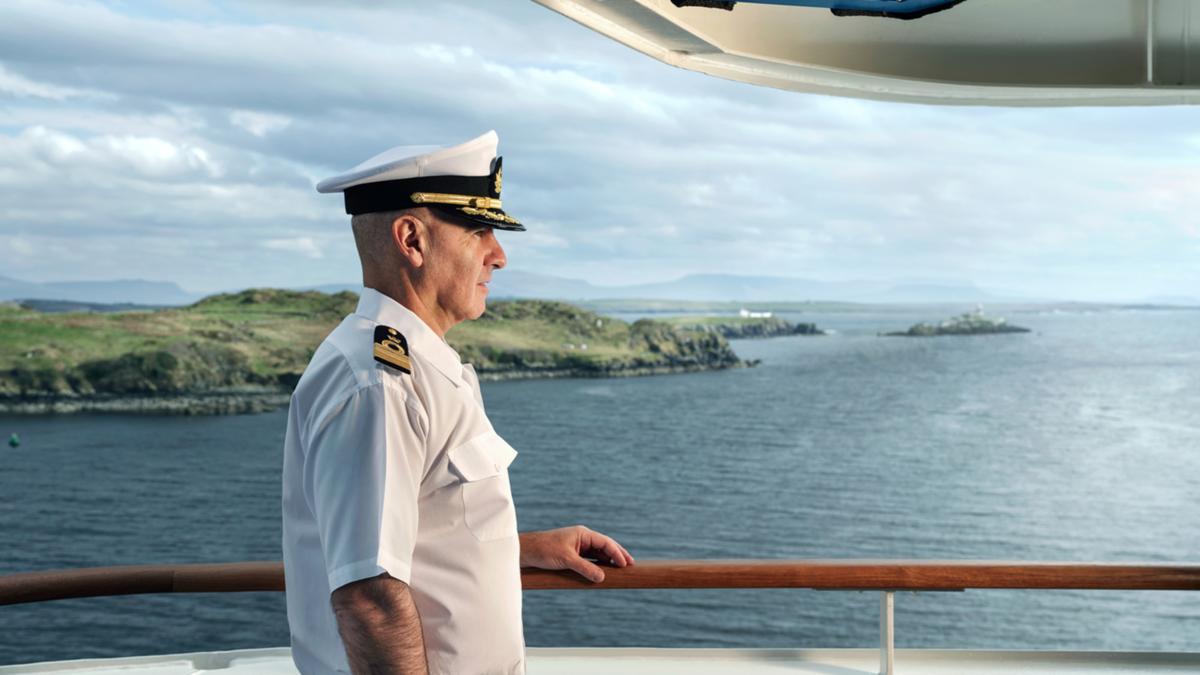
When you think of a ship captain, you probably imagine someone in a navy uniform, barking orders on the deck of a massive vessel. But there is so much more to the role of a ship captain than meets the eye. These individuals are responsible for the safe navigation of the ship, the well-being of the crew, and the successful completion of voyages that span the world’s oceans.
In this article, we will delve into the fascinating world of ship captains and uncover some unbelievable facts about their role. From their extensive training and qualifications to their unique job responsibilities, you’ll be amazed at the level of expertise required to command a ship. So, strap in and get ready to set sail on an incredible journey as we explore the nine unbelievable facts about ship captains.
Key Takeaways:
- Ship captains have ultimate authority onboard and must be skilled in emergency response, celestial navigation, and negotiating with stakeholders to ensure smooth operations.
- Ship captains communicate in a secret language, can perform weddings at sea, and are responsible for crew welfare, staying up-to-date with maritime laws, and adhering to a strict code of ethics.
The Ship Captain’s Authority is Absolute
Did you know that a ship captain’s authority onboard is absolute? That’s right. A ship captain holds ultimate decision-making power and is responsible for the vessel, its crew, and the cargo. From navigating through treacherous waters to managing emergencies, the ship captain’s word is final.
Ship Captains Communicate in a Secret Language
Believe it or not, ship captains have their secret language called “maritime jargon.” This specialized vocabulary is used for clear and efficient communication between crew members. Terms like “port” for the left side of the ship and “starboard” for the right side, along with countless others, are integral parts of a ship captain’s linguistic arsenal.
Ship Captains Have to Master Celestial Navigation
In an era of GPS and advanced navigation systems, it may come as a surprise that ship captains are required to learn celestial navigation. This ancient art of using the stars, moon, and sun to determine the ship’s position on the open seas is a skill that every ship captain must possess.
Ship Captains Can Perform Weddings at Sea
Imagine tying the knot on the high seas with a ship captain as your officiant! Ship captains have the authority to perform legal marriage ceremonies aboard their vessels. It’s a unique and romantic option for couples who want to say “I do” in a truly unforgettable way.
Ship Captains Must be Masters of Emergency Response
In times of crisis, ship captains are the ones who must maintain calm and take control. They undergo rigorous training in emergency response, including fire safety, medical emergencies, and evacuation procedures. Ship captains are well-prepared to handle any unforeseen circumstances that may arise at sea.
Ship Captains Have their Code of Ethics
Ship captains adhere to a strict code of ethics known as “The Master Mariners’ Code.” This code promotes professionalism, integrity, and responsibility in a ship captain’s actions and decisions. It ensures the safety of the crew, passengers, and the environment.
Ship Captains are Skilled Negotiators
A ship captain often has to negotiate with port authorities, suppliers, and other stakeholders to ensure smooth operations. Their negotiation skills come into play when dealing with matters such as cargo loading and unloading, port fees, and customs regulations.
Ship Captains Must Stay Up-to-Date with Maritime Laws
Ship captains must stay well-informed about the ever-changing maritime laws and regulations. They need to be aware of international conventions, safety standards, and environmental protection protocols to ensure compliance and avoid legal issues.
Ship Captains are Responsible for Crew Welfare
A ship captain’s responsibilities extend beyond just sailing the vessel. They have a duty to care for the well-being of the crew members, providing food, accommodation, medical care, and maintaining a safe and healthy working environment.
Conclusion
Ship captains are extraordinary individuals who play a vital role in the maritime industry. From overseeing navigation to managing a crew and ensuring the safety of the ship and its cargo, their responsibilities are immense. As we’ve seen, ship captains have a wealth of knowledge and experience that enables them to navigate through challenging waters and make critical decisions. Their ability to handle high-pressure situations and their dedication to their craft is truly remarkable.Being a ship captain is not just a job; it’s a way of life. The expertise and skillset required to command a vessel and lead a team are truly remarkable. It’s no wonder that people are fascinated by the mysteries and facts surrounding ship captains.
FAQs
1. How do ship captains navigate through the open ocean?
Ship captains use various navigation systems such as GPS, nautical charts, compasses, and radar to navigate through the open ocean. They also consider weather patterns, currents, and other environmental factors to ensure a safe and efficient course.
2. What qualifications are required to become a ship captain?
To become a ship captain, one must first obtain a bachelor’s degree in a relevant field such as marine transportation or maritime studies. They must then gain significant sailing experience and obtain the necessary certifications and licenses, including a Master Mariner’s License.
3. How long does it take to become a ship captain?
The time it takes to become a ship captain can vary depending on individual circumstances. Generally, it takes several years of sailing experience and a combination of education, training, and licensing. It can range from 6 to 10 years or more.
4. What are the biggest challenges faced by ship captains?
Ship captains face various challenges, including adverse weather conditions, navigating through congested ports, managing crew dynamics, and dealing with emergencies such as engine failures or accidents at sea. They must be prepared to make quick and critical decisions in high-pressure situations.
5. Are ship captains responsible for the safety of the crew and cargo?
Yes, ship captains are responsible for the safety and security of the crew, passengers, and cargo on board their vessels. They must ensure that all safety protocols and regulations are followed to prevent accidents and minimize risks.
Captivated by ship captains' incredible lives? Dive deeper into maritime marvels, uncover secrets of expert navigators, and explore seafaring cultures like the fascinating Bajau people. Embark on a journey through these captivating topics to expand your knowledge and appreciation for life at sea.
Was this page helpful?
Our commitment to delivering trustworthy and engaging content is at the heart of what we do. Each fact on our site is contributed by real users like you, bringing a wealth of diverse insights and information. To ensure the highest standards of accuracy and reliability, our dedicated editors meticulously review each submission. This process guarantees that the facts we share are not only fascinating but also credible. Trust in our commitment to quality and authenticity as you explore and learn with us.


